
Paul Desmond was an American jazz alto saxophonist and composer and proponent of cool jazz. He was a member of the Dave Brubeck Quartet and composed that group's biggest hit, "Take Five".

Cool jazz is a style of modern jazz music inspired by bebop and big band that arose in the United States after World War II. It is characterized by relaxed tempos and a lighter tone than that used in the fast and complex bebop style. Cool jazz often employs formal arrangements and incorporates elements of classical music. Broadly, the genre refers to a number of post-war jazz styles employing a more subdued approach than that of contemporaneous jazz idioms. As Paul Tanner, Maurice Gerow, and David Megill suggest, "the tonal sonorities of these conservative players could be compared to pastel colors, while the solos of [Dizzy] Gillespie and his followers could be compared to fiery red colors."

Gerald Joseph Mulligan, also known as Jeru, was an American jazz saxophonist, clarinetist, composer and arranger. Though primarily known as one of the leading jazz baritone saxophonists—playing the instrument with a light and airy tone in the era of cool jazz—Mulligan was also a significant arranger working with Claude Thornhill, Miles Davis, Stan Kenton, and others. His piano-less quartet of the early 1950s with trumpeter Chet Baker is still regarded as one of the best cool jazz ensembles. Mulligan was also a skilled pianist and played several other reed instruments. Several of his compositions including "Walkin' Shoes" and "Five Brothers", have become standards.
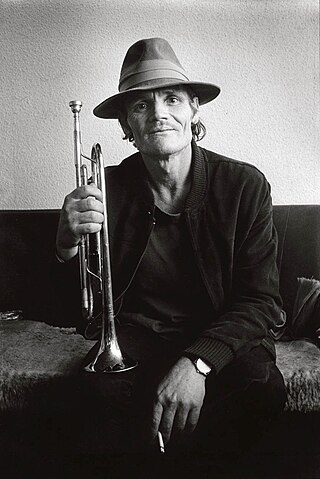
Chesney Henry "Chet" Baker Jr. was an American jazz trumpeter and vocalist. He is known for major innovations in cool jazz that led him to be nicknamed the "Prince of Cool".
Leroy Vinnegar was an American jazz bassist. Born in Indianapolis, Indiana, United States, the self-taught Vinnegar established his reputation in Los Angeles, California, during the 1950s and 1960s. His trademark was the rhythmic "walking" bass line, a steady series of ascending or descending notes, and it brought him the nickname "The Walker". Besides his jazz work, he also appeared on a number of soundtracks and pop albums, notably Van Morrison's 1972 album, Saint Dominic's Preview.
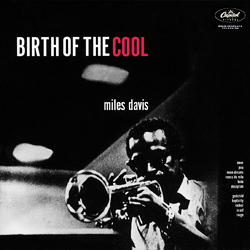
Birth of the Cool is a compilation album by the American jazz trumpeter and bandleader Miles Davis, released in February 1957 by Capitol Records. It compiles eleven tracks recorded by Davis's nonet for the label over the course of three sessions during 1949 and 1950.
West Coast jazz refers to styles of jazz that developed in Los Angeles and San Francisco during the 1950s. West Coast jazz is often seen as a subgenre of cool jazz, which consisted of a calmer style than bebop or hard bop. The music relied relatively more on composition and arrangement than on the individually improvised playing of other jazz styles. Although this style dominated, it was not the only form of jazz heard on the American West Coast.

Carson Raymond Smith was an American jazz double-bassist. Carson is the older brother of jazz musician and composer Putter Smith.

Adolph Stanley Levey known professionally as Stan Levey was an American jazz drummer. He was known for working with Charlie Parker and Dizzy Gillespie in the early development of bebop during the 1940s, and in the next decade had a stint with bandleader Stan Kenton. Levey retired from music in the 1970s to work as a photographer.

Claude Berkeley Williamson was an American jazz pianist.
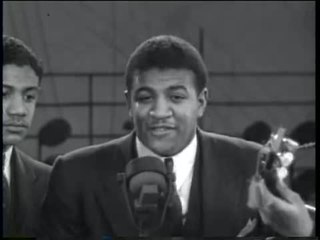
"Dinah" is a popular song published in 1925 and introduced by Ethel Waters at the Plantation Club on Broadway. It was integrated into the show Kid Boots. The music was written by Harry Akst and the lyrics by Sam M. Lewis and Joe Young. Hit versions in 1926 were by Ethel Waters, The Revelers, Cliff Edwards, and Fletcher Henderson.
Lawrence Benjamin Bunker was an American jazz drummer, vibraphonist, and percussionist. A member of the Bill Evans Trio in the mid-1960s, he also played timpani with the Los Angeles Philharmonic orchestra.
Joe Mondragon was an American jazz bassist.
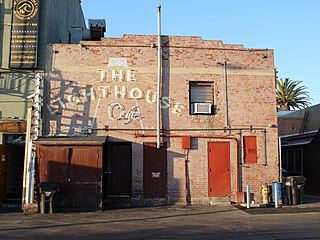
The Lighthouse Café is a nightclub located at 30 Pier Avenue in Hermosa Beach, California. It has been active as a jazz showcase since 1949 and, under the name "The Lighthouse", was one of the best known West Coast jazz clubs from the 1950s through the late 1970s. In addition to jazz, reggae to rock - among other genres of music - are now performed at the venue, including bookings of local artists such as Jett Prescott and George Stanford.
Jon Eardley was an American jazz trumpeter.
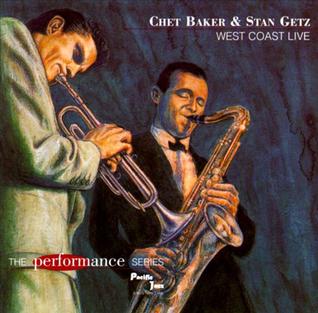
West Coast Live is a live album by trumpeter Chet Baker and saxophonist Stan Getz which was recorded in California in 1953 but not released until 1997, on the Pacific Jazz label.
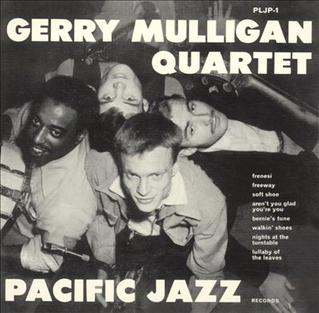
Gerry Mulligan Quartet Volume 1 is an album by saxophonist and bandleader Gerry Mulligan featuring performances recorded in 1952 and originally released as the first 10-inch LP on the Pacific Jazz label. In 2001 Pacific Jazz released an album on CD with additional tracks from Mulligan's first five recording sessions.

Gerry Mulligan Quartet Volume 2 is an album by saxophonist and bandleader Gerry Mulligan featuring performances recorded in 1953 and originally released as a 10-inch LP on the Pacific Jazz label. In 2001 Pacific Jazz re-released the album on CD with additional alternate takes and 12" masters along with five live tracks.

Lee Konitz Plays with the Gerry Mulligan Quartet is a compilation album by saxophonist and bandleader Gerry Mulligan's Quartet with Lee Konitz featuring performances recorded in early-1953. The records on the album were originally released on 10-inch LPs Lee Konitz Plays with the Gerry Mulligan Quartet and Lee Konitz and the Gerry Mulligan Quartet on Pacific Jazz Records along with previously unreleased tracks and alternate takes.

"Freeway" is a 1952 jazz song composed by Chet Baker and recorded with the Gerry Mulligan Quartet. The song was released as part of an LP album and an EP single in the U.S. and a 45 single in the UK and France in 1952.















